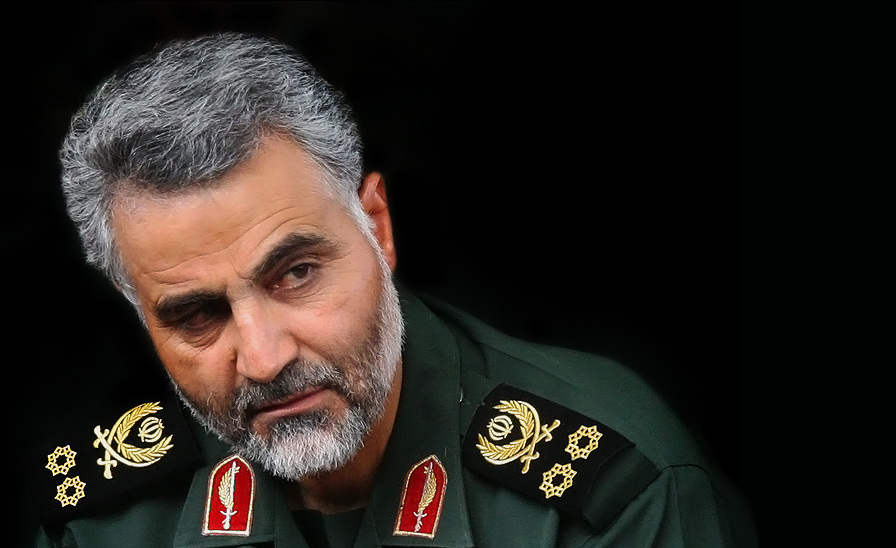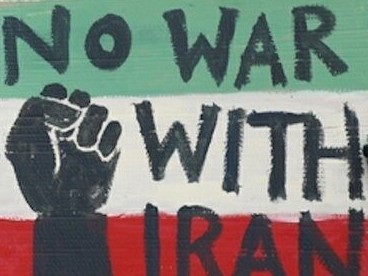Hear more from Richard A. Falk at CASI’s webinar on Feb. 1, 2021, “US-Iran Relations in the Biden Era: What’s Next?” Click here for more details or to register.

Remembering General Qassim Soleimani
By RICHARD A. FALK
This first anniversary of the assassination of General Soleimani provides an occasion to remember not only the man but the nature of the criminal act, the precedent set, and degree to which Iran and the region have become the main hunting ground of post-colonial Western imperialism. It is also relevant to take note of Mossad’s apparent responsibility for the targeted killing of Iran’s leading nuclear scientist, Mohsen Fakhrizadeh on November 27th. Although most of the world associates 2020 with the COVID-19 pandemic, for Iranians, although hard hit by the virus as aggravated by U.S. sanctions maintained despite many international humanitarian pleas, the year will be primarily remembered for these acts of state terror.
Without shame, Donald Trump made no secret of his role in ordering, and then claiming credit for the killing of General Soleimani just after this stateman/military commander had arrived in Baghdad at the invitation of the Prime Minister of Iraq to embark on discussions with Saudi Arabia designed to deescalate regional tensions. As the UN Special Rapporteur for Extrajudicial and Arbitrary Executions, Agnes Callimard, made clear in an official report devoted to this event, the use drone weaponry to eliminate a top leader of a country, without presenting a shred of evidence that there existed a threat of an attack on American diplomatic facilities crossed a red line. She called it not only a violation of international human rights law, but more significantly, ‘an act of war’ that violated the core prohibition of the UN Charter prohibiting recourse to aggressive forms of international force.
There are other lessons to be learned in thinking about the life and death of General Soleimani. A lesson for Americans is to appreciate the degree to which tying their role in the Middle East to Israeli priorities brings negative consequences for their wider national interests in the region as well as tarnishes its international reputation. The greatest achievement of General Soleimani was to be the most effective anti-Daesh leader in the struggle against extremist barbarism in the region, which followed his earlier efforts to defeat the Taliban in Afghanistan. In effect, the only real threat to legitimate American security interests came from Daesh, and earlier Al Qaeda. Seen in this light, to regard Iran as Enemy #1 was to misinterpret U.S. interests. Such misguided behavior also helps explain disastrous earlier policy mistakes, none worse than the 2003 attack and occupation of Iraq, another costly, unlawful, and self-defeating undertaking that was pushed hard by Israel. If U.S interests in the Middle East were appraised free from such distortions, it would have long ago normalized relations with Iran for its own sake.
I believe that Obama understood this, and skillfully sought to move out of a policy orbit shaped in Tel Aviv and Riyadh. This turn angered the Israeli leadership to such an extent that the Trump presidency, despite its overall international irresponsibility, was enthusiastically embraced. What Obama tried to do was to remove anxieties about Iran’s nuclear program in exchange for ending sanctions. This initiative was formalized in the Joint Program of Comprehensive Action agreement unanimously supported by the P-5 membership of the Security Council plus Germany in 2015, and widely hailed as a breakthrough for peace in the region. I found it remarkable at the time that Iran was willing to accept an outcome that curtained its nuclear program while ignoring Israel’s arsenal of nuclear weapons. Nevertheless, for Israel and Saudi Arabia JPOCA was viewed as betrayal. Trump rebounded by repudiating the 2015 agreement in 2018, also motivated to undo Obama’s major diplomatic achievement to demonstrate at home an overriding commitment to an ‘America First’ foreign policy that rejected internationalism in all its forms. Trump’s withdrawal from the Paris Climate Change Agreement for similar ultra-nationalist reasons sent the same unwelcome message to the world.
We are led to wonder, with the advent of the Biden presidency, whether the Obama approach will be restored, and if so, in what manner and with what effort to balance an accommodating diplomacy with Iran while trying to appraise Israeli supporters as much as possible. An early test for Biden will be whether Biden will insist on linking U.S. participation in the JPOCA with a demand that Iran disavow its regional diplomacy in such countries as Syria, Yemen, and Lebanon. Such an unseemly balancing act is unlikely to be acceptable in Iran under any conditions. This kind of unreasonable bargain would likely inflame further the lingering bitterness toward the U.S. in light of the targeted killing of an individual beloved by the Iranian people and widely considered a possible future political leader, someone seen as second in importance only to the Supreme Guide. If Biden really wanted a new relationship to Iran and the region, he would start with an apology.
